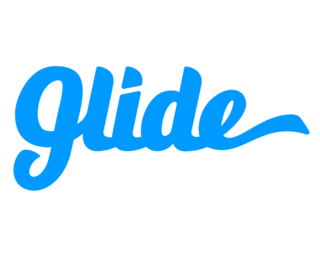
A walkie-talkie, more formally known as a handheld transceiver (HT), is a hand-held, portable, two-way radio transceiver. Its development during the Second World War has been variously credited to Donald Hings, radio engineer Alfred J. Gross, Henryk Magnuski and engineering teams at Motorola. First used for infantry, similar designs were created for field artillery and tank units, and after the war, walkie-talkies spread to public safety and eventually commercial and jobsite work.

Paltalk is a proprietary video group chat service that enables users to communicate by video, Internet chat, or voice. It offers chat rooms and the ability for users to create their own public virtual chat room. Paltalk Desktop is available on macOS and Windows, and Paltalk Video Chat App is available for Android and iOS. While basic services are free of charge and basic software is free to download, fee-based memberships and paid upgrades to more capable versions are offered by AVM Software, the creators of Paltalk.

Loopt was a company based in Mountain View, California, United States which provided a service for smartphone users to share their location selectively with other people. The service supported iPhone, BlackBerry, Android and Windows Phones. Loopt's services had more than five million registered users and partnerships with every major U.S. mobile phone carrier. Their applications offered a variety of privacy controls. In addition to its core features, users also had the ability to integrate Loopt with other social networks, including Facebook and Twitter.
Ben Keighran is an Australian born technology entrepreneur and serial entrepreneur. He is the founder and CEO of social broadcasting platform Caffeine.
Snaptu pronounced "snap tu", previously known as Moblica was a free Israeli-made mobile application platform that ran on virtually every type of Internet-enabled mobile phone. It allowed the user to access popular services, varying from social networks like Facebook, Twitter, Flickr, ESPN CricInfo and Picasa to entertainment news, blogs, sports and local guides.

OpenFeint was a social platform for mobile games for devices running on Android or iOS. It was developed by Aurora Feint, a company named after a video game by the same developers. The platform consisted of an SDK for use by games, allowing its various social networking features to be integrated into the game's functionality. OpenFeint was discontinued at the end of 2012.
Kik Messenger, commonly called Kik, is a freeware instant messaging mobile app from the Canadian company Kik Interactive, available on iOS and Android operating systems.

WhatsApp is a freeware, cross-platform, centralized instant messaging (IM) and voice-over-IP (VoIP) service owned by United States tech conglomerate Meta Platforms. It allows users to send text, voice messages and video messages, make voice and video calls, and share images, documents, user locations, and other content. WhatsApp's client application runs on mobile devices, and can be accessed from computers. The service requires a cellular mobile telephone number to sign up. In January 2018, WhatsApp released a standalone business app called WhatsApp Business which can communicate with the standard WhatsApp client.

BlueStacks is an American technology company recognized for its creation of the BlueStacks App Player and other cloud-based cross-platform products. The BlueStacks App Player enables the execution of Android applications to run on computers running Microsoft Windows or macOS. The company's establishment traces back to 2009, founded by Jay Vaishnav, Suman Saraf, and Rosen Sharma.

Messenger is an American proprietary instant messaging app and platform developed by Meta Platforms. Originally developed as Facebook Chat in 2008, the company revamped its messaging service in 2010, released standalone iOS and Android apps in 2011, and released standalone Facebook Portal hardware for Messenger calling in 2018. In April 2015, Facebook launched a dedicated website interface, Messenger.com, and separated the messaging functionality from the main Facebook app, allowing users to use the web interface or download one of the standalone apps. In April 2020, Facebook released a Messenger desktop app for Windows and macOS.
Snapchat is an American multimedia instant messaging app and service developed by Snap Inc., originally Snapchat Inc. One of the principal features of Snapchat is that pictures and messages are usually only available for a short time before they become inaccessible to their recipients. The app has evolved from originally focusing on person-to-person photo sharing to presently featuring users' "Stories" of 24 hours of chronological content, along with "Discover", letting brands show ad-supported short-form content. It also allows users to store photos in a password-protected area called "my eyes only". It has also reportedly incorporated limited use of end-to-end encryption, with plans to broaden its use in the future.
Talkbits was a free voice mobile app for iOS and Android that combined push-to-talk technology with social discovery. The application has been developed and maintained by OnAir Labs, an internationalArchived 2013-01-11 at the Wayback Machine mobile development company. As of December 2013, the Talkbits service is not available anymore.

News360 was a personalized news aggregation app for smartphones, tablets and the web. It attempted to learn a user's interests by analyzing their interaction with news stories on the app and using semantic analysis and natural language processing to create an Interest Graph and construct a unique feed of relevant content for each user. The app claims an audience of more than 4 million users.

Zello is a tech software company in Austin, Texas, U.S., known for the Zello app, which emulates push-to-talk (PTT) walkie-talkies over cell phone networks.

AlterGeo, formerly known as Wi2Geo, is a Russian IT company specializing in the development of a global hybrid positioning system which combines Wi-Fi, WiMAX, GSM, GPS, LTE, IP address and network environment approaches. It also created cross-platform location-based services Gvidi and AlterGeo, and hyperlocal banner ad system Local Hero.

Glide is an instant video messaging platform for iOS, Android, and Windows mobile devices.

Hike Messenger, also known as Hike Sticker Chat, was an Indian freeware, cross-platform instant messaging (IM), and Voice over IP (VoIP) application that was launched on December 12, 2012, by Kavin Bharti Mittal and is now owned by Hike Private Limited. Hike worked offline through SMS and had multi-platform support. The app registration used a standard one-time password (OTP) based authentication process. Hike was estimated to be worth $1.4 billion, with more than 100 million registered users.

Fuze is a cloud communications and collaboration software platform designed for the enterprise. Fuze was acquired by 8x8. The company is headquartered in Boston, Massachusetts.













